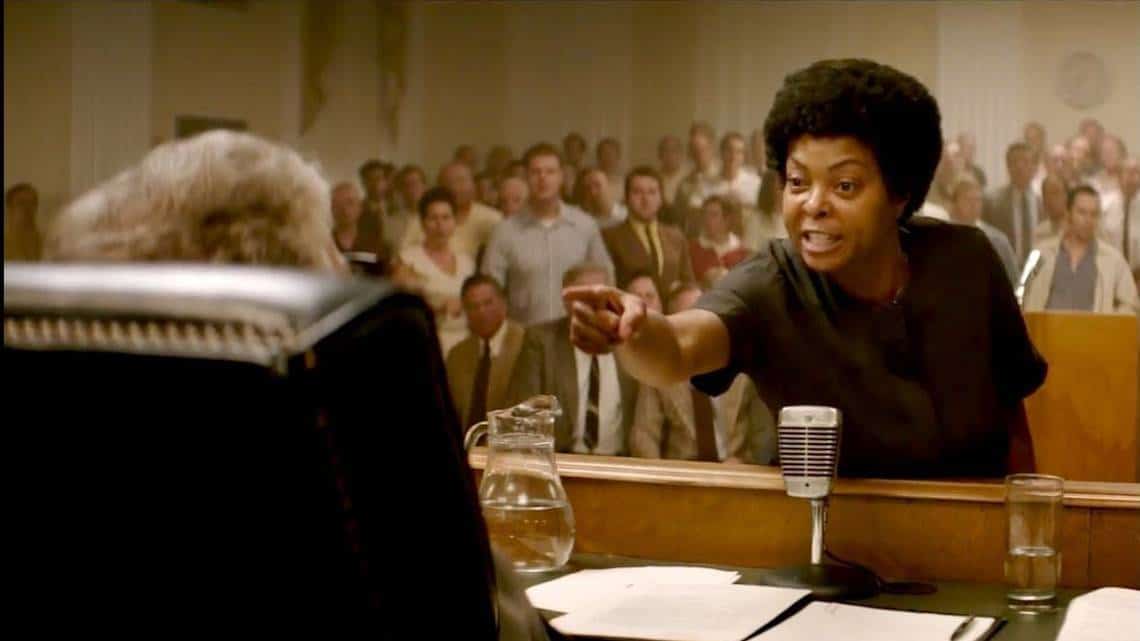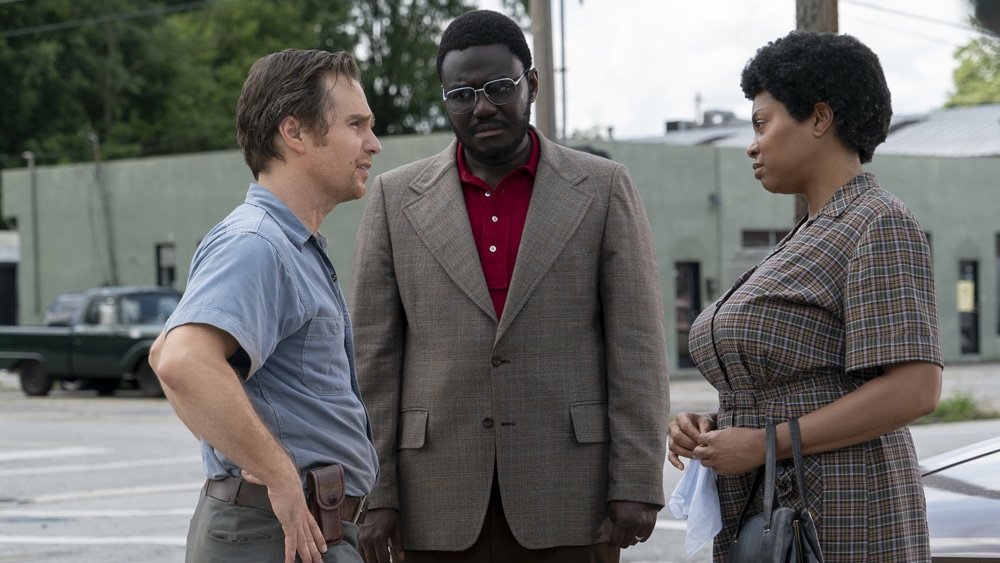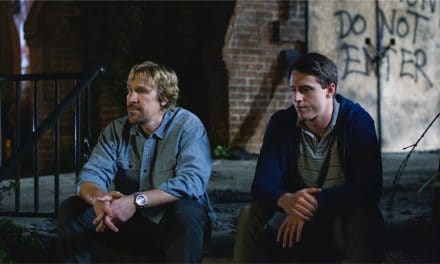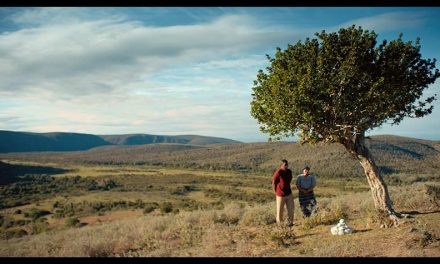Here’s a public service announcement: The Best of Enemies is not “another white savior film.”
Based on a true story, it is part engrossing history lesson and part masterclass on the fruits of the spirit.
The Best of Enemies transports viewers to a racially divided Durham, North Carolina in 1971, when both Black activism and Klan activity were at peak level. After a fire damages a school attended by Black children and makes it unfit for occupancy, we find ourselves watching as a fight for school integration unfolds. It is an engrossing fight, to say the least.
The Best of Enemies keeps your attention, stirs up your emotions, and highlights the ugly absurdity of racism. It also tugs at your heart. Parts of the film will catch you off guard. You don’t expect to have any empathy whatsoever for C.P. Ellis (Sam Rockwell), the grand exalted cyclops of the Ku Klux Klan – but there are moments when the layers of his personal story are peeled back and he is humanized to the degree of eliciting compassion.
Ellis is committed to upholding the white supremacist ideology that he was raised to honor and protect, but he has a worthy adversary in activist Ann Atwater (Taraji P. Henson), the voice of the people in Durham. Atwater is fiery and relentless in her fight for civil rights, and she is equally kind, with a heart for people – regardless of their race. Early in the film she calls out the hypocrisy of Ellis saying he was a Christian, and yet being a racist: “you should know, the same God that made you, made me.”
Later in the film, Atwater says something else that leaves us a lot to ponder: “As long as the CP Ellis’s of the world keep getting their way, ain’t nothing gone change.” To that you have no choice but to think, “ain’t that the truth,” and then roll the tape of how much has and hasn’t changed since this 1971 moment in history. But that’s not what this movie is about.
In a documentary interview, Atwater said that God gave her “the gift and ability to be able to reach out and touch.” If someone needed help, she said “God wants me to go on record to say ‘I tried.’…All I had was God having my back…He still has my back and He always will have it if I keep trusting him.”

The Best of Enemies hinges on the city’s debate about whether or not the Black school kids could attend the white school in the wake of the fire. To settle the debate, Bill Riddick, a community organizer from neighboring Raleigh, is called in to facilitate a “charrette”, which is essentially a week long town hall meeting exploring all sides of an issue and ending in a decisive vote. Ellis and Atwater are begrudgingly recruited as co-chairs. As the 10-day charrette unfolds, we see some of the film’s most poignant moments. After one of the first meetings, a Reverend stands up and suggests that they end with something positive that will “uplift everyone’s spirits” and humbly suggests that they sing a few Gospel songs. In response, someone in opposition shouts “that’s n*ggr music”. However, the singing commenced and the spirits of all who stayed were visibly lifted. Singing at the end of the meeting became the norm and, later in the film, ostensibly a few days into the charrette, you see the crowd sprinkled with a few of the white attendees nervously clapping along to the music. We also see extreme measures deployed on behalf of the “white vote” to protect their interests.
Slowly, throughout The Best of Enemies, you see the chains of racism falling from Ellis’ heart. He discovers that everything that he believed and worked hard for as a Klansman hinged on the motto “not for self, but for others.” Experiencing Atwater demonstrate numerous selfless acts of love – even towards him – brought Ellis face to face with the contradiction of his racist views and that one guiding statement.
Ultimately, when everything that he was previously known for was on the line, and his charrette vote had to be cast, those chains of racism fell off completely.
This is a touching story that demonstrates how love and kindness can, like a river, erode hate. It also shows that love does not have to be loud to be effective, it just has to be present.
The Best of Enemies is in theaters now.








Recent Comments